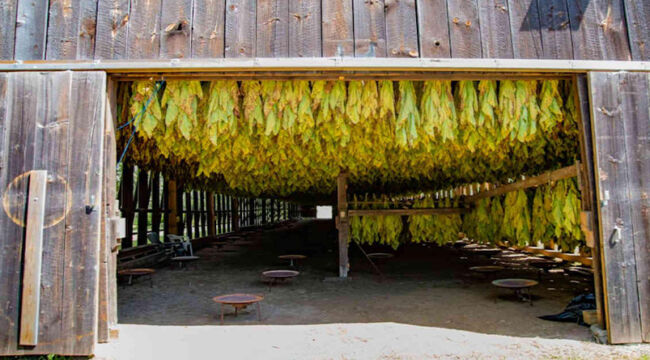Go Anti-ESG For a 7.9% Yield
Over the past 10 years, “socially-conscious” investors have shunned sectors such as tobacco, firearms, oil and gas, and alcohol.
For example, these huge investment firms refuse to own any tobacco stocks or bonds:
- Allianz SE: $2.3T AUM (Assets Under Management)
- CalPERS (California Public Employees’ Retirement System): $469B AUM
- AXA Group: $950B AUM
- Norwegian Pension Fund: $1.74T AUM
That’s a tiny sampling of the firms which have “divested” from tobacco. They literally cannot buy some of the highest-yielding, recession-resistant, and most dependable cash flow generators on the planet.
I’d guess that “dirty” industries like tobacco are avoided by up to a third of large investment firms today. Maybe even half. The woke-mind-virus is alive and spreading among institutional investors.
This should mean these anti-ESG companies are not reaching their full price potential, and are artificially cheap. In theory, this translates to higher yields.
In practice, this also appears to be the case.
Altria’s Big Yields
Today Altria (MO), owner of Marlboro and many other assets, offers a 7.9% yield. Its Price/Earnings ratio sits at a modest 8x.
Is the business growing fast? No. Revenue only increased 1.3% over the past year. But there’s a plan to increase growth, and Altria remains a cash flow machine. They’re always optimizing, cutting costs, and increasing margins. So profits were up 5.9% over the last 12 months.
I’ve owned MO since June of 2022 and it’s done well since. The share price is up 21%, which is nice, but compounding the dividends has brought the total return to 49%.
By using a DRIP (dividend reinvestment program), income gets automatically reinvested in MO as it is paid (quarterly). It’s shocking how fast an 8% yield compounds when it’s paid 4 times a year.
From 1925 to 2007, Philip Morris was the best-performing stock in the world. A $1,000 investment would have turned into $380 million. The average annual return was 17% when dividends were reinvested.
That’s the power of consistent cash-flow generators. And nobody has generated cash better, over the long run, than tobacco companies.
The Smokeless Tobacco Revolution
One of the other reasons Altria remains cheap is that it’s currently losing out to Philip Morris International (PM), which spun off Altria in 2008, in the nicotine pouch space.
PM owns Swedish Match, which sells the dominant Zyn nicotine pouches. The market for cigarette alternatives is absolutely on fire, and Zyn has about 75% market share in the red-hot nicotine pouch area.
The majors such as PM and MO are primed to take advantage of this shift. PM is also an attractive stock, but it’s had an incredible run over the past few years, and isn’t exactly cheap anymore. I’d love to buy it on any major correction.
Fortunately Altria also has plenty of exposure to smokeless tobacco. They own on! nicotine pouches, which have an approximately 7% market share in the space.
Altria aims to take market share from PM’s Zyn. They will soon release on! PLUS nicotine pouches in the U.S., which they hope will improve their competitive position against Zyn.
Nicotine pouches are turning out to be a monstrously large market, and I believe Altria will take a big chunk of it. The company has the distribution networks, cash, and expertise to take a big piece of this lucrative market in time.
Altria also owns Copenhagen and Skoal, the most popular moist tobacco products. All the distribution infrastructure is already in place to seize the nicotine pouch market. Altria just needs a better product, and is hard at work on the problem.
Smokeless tobacco, including pouches and vaporizers, appear to be the future. MO is well positioned in both areas, but has significant room to improve. And in the meantime cigarettes will continue to be a high-margin market for the company.
When it comes to tobacco stocks, ESG investors are leaving money on the table. Pick it up.
I hope you all are having an excellent weekend.



Comments: